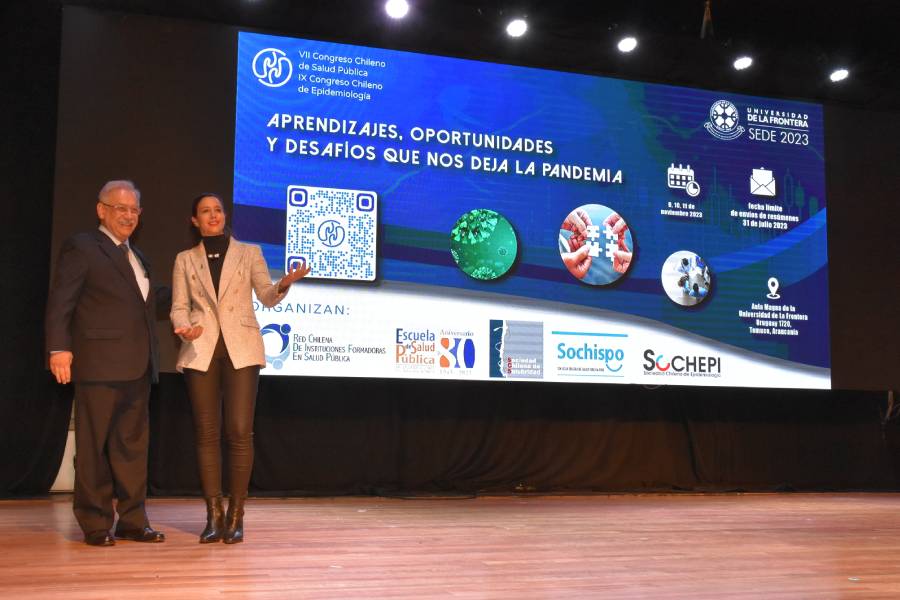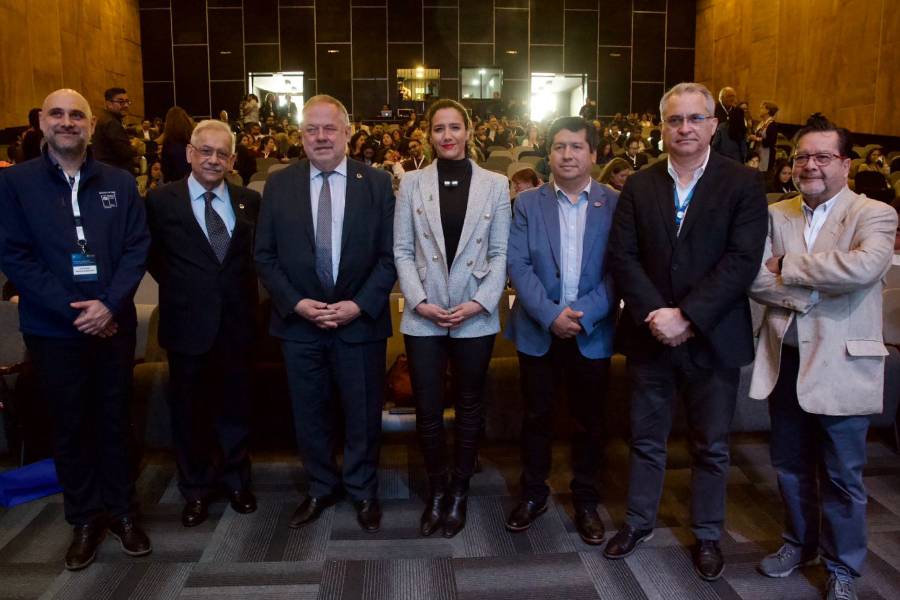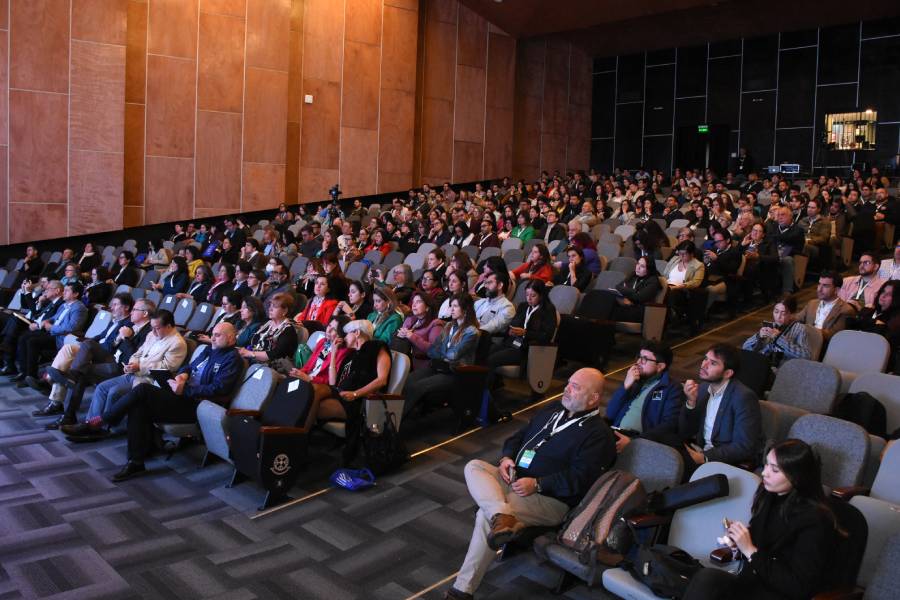|
Academics, students, health professionals and authorities came together at Universidad de La Frontera under the motto “Knowledge, opportunities and challenges left by the pandemic”. |
More than 500 health professionals met at the seventh Congress on Public Health and the ninth Congress on Epidemiology in the Aula Magna of Universidad de La Frontera (UFRO) to address the main health problems after the pandemic. Academics, students, health professionals and authorities came together under the motto “Knowledge, opportunities and challenges left by the pandemic” for the congress, which was inaugurated by Dr. Sergio Muñoz Navarro, the chair of the organising committee. “This is the Congress on Public Health that brought the most presented papers together, with 374 research papers, which makes us very happy and anxious. We are sure that it will be a complete success,” said Dr. Muñoz, academic of the Department of Public Health and the Centre of Training, Research and Management for Evidence-based Health (CIGES) of UFRO. The rector of the university, Dr. Eduardo Hebel Weiss, acknowledged the work of the health teams during the pandemic and emphasized the importance of participating together with other academics and health professionals in activities that address the new issues that have emerged after the COVID-19 pandemic. “This is the first time after the pandemic that we managed to bring together so many epidemiologists and health specialists to discuss the knowledge, opportunities and challenges the pandemic left us. This opportunity for dialogue should focus on everything that has been done to work towards the future,” Dr. Hebel explained. The keynote speaker at the event was Andrea Albagli Iruretagoyena, the Deputy Secretary of Public Health, who presented “Priorities of Government Management in Health”, where she addressed the government’s aim to reduce the drastic impacts of the pandemic, as well as the priorities of the ministry to work on health reforms to reduce delays, improve mental health care, reduce childhood obesity and increase the tobacco control measures. “COVID-19 is no longer a global health emergency, but that does not mean that it is no longer a challenge. The main goal of our agenda is to diminish the post-pandemic effects. The challenge for those who had to face the pandemic was to make a series of very difficult decisions, and now, we have to face a series of changes to diminish the post-pandemic effects,” Andrea Albagli explained. The congress took place from November 9 to November 11, with the symposia on “Civil society participation in pandemic control: epidemiology for decision-making”, “Challenges and opportunities of artificial intelligence applied to health” and “The tobacco epidemic in times of COVID-19: strategic, political and citizen analysis”; the presentation of research papers; and the closing conference by Dr. Ricardo Rozzi on “The interconnection between public health and protected areas: the ethics of cohabitation”, among others. Written by: Fabian Aguirre Silva, Faculty of Medicine |







